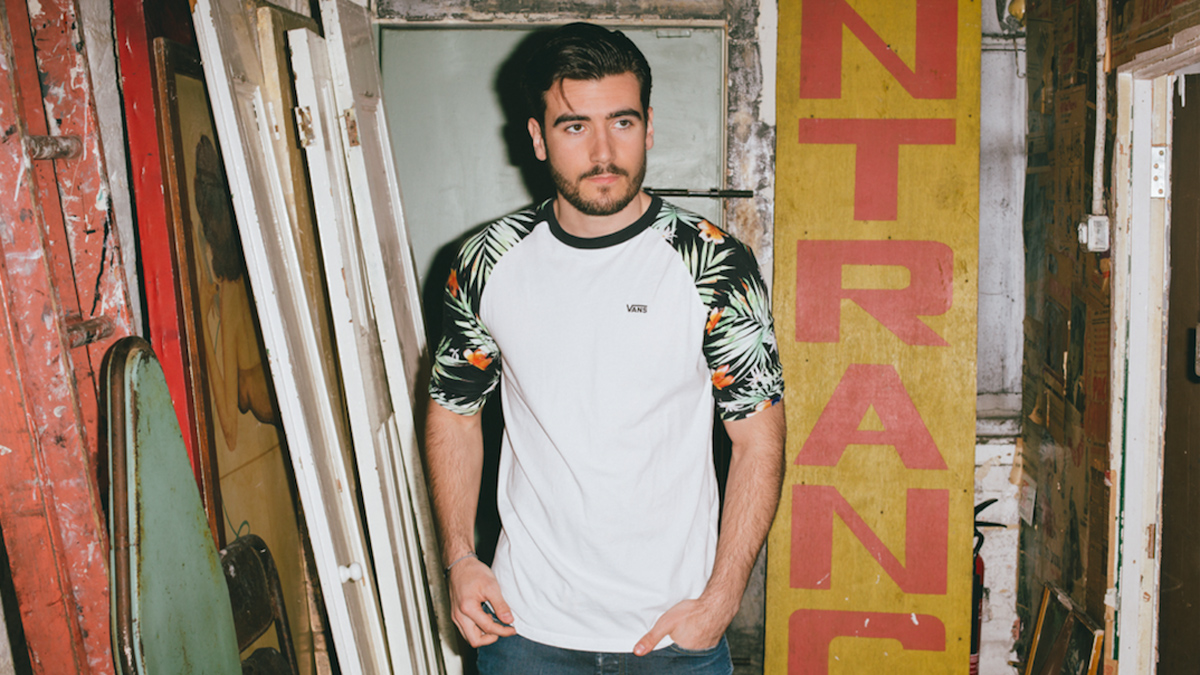MYBADD: 5 things I've learned about music production
Writer and producer Jamie Haj reveals his creative strategies

Want all the hottest music and gear news, reviews, deals, features and more, direct to your inbox? Sign up here.
You are now subscribed
Your newsletter sign-up was successful
Beginning his career as a writer/producer, Jamie Haj has worked with the likes of Becky Hill, Kideko and M.O. Now, as MYBADD, he’s becoming an artist in his own right, with debut release Party On A Weekday featuring US star and Disney alumni Olivia Holt.
We asked Jamie to consider his music making experiences up to this point and tell us what he’s learned from them.
1. Less is more
“When the track starts to feels good, stop. The last thing you want to do is over-work it by adding too many instruments and parts. I have learned to trust my own intuition, judging a song by the way it makes me feel rather than obsessing over the small details.
“Once I have knocked up a track into a good place I’ll take a break, come back with fresh ears and go through muting sounds one by one to see if I really need everything in there. Sometimes I’ll find instruments that don't particularly add much to the mix, but instead make it feel convoluted, so I’ll take them out altogether.
Not every instrument should take up the entire frequency spectrum - having just one kick instead of five layered kicks might leave more room for some of the other elements to breathe, and the irony is that in some cases fewer instruments can lead to a bigger, louder-sounding mix.”
2. Use quality sounds from the ground up
“Starting with the right sounds and samples is crucial. Investing in some decent plugins and sample packs is a great place to start because this enables you to be more creative as you don't have to worry about creating that perfect kick or snare. Building a track from the bottom up as quickly and as fluently as possible allows for more creative flair, and just makes the whole process more inspiring for the other creatives around you.
“I would recommend doing some research into which plugins your contemporaries are using and buying a handful of top-quality plugins and sample packs to get going.”
Want all the hottest music and gear news, reviews, deals, features and more, direct to your inbox? Sign up here.
3. Tuning drums
“Underestimating the importance of this can have a drastic impact on your mix. I like to tune most of my percussion below 10k as it can interfere with the bass, and some of the low-mid frequencies too (for example, if I'm in D minor, I’ll tune my kick to D). This makes for a more cohesive-sounding low end.
“Snares aren't so simple, and sometimes a perfectly tuned snare can end up getting lost in the mix. It’s important to keep some sounds dissonant and percussive, so as not to interfere with any melodies that might fall within the same frequency bracket.”
4. Take regular breaks
“Taking time away from a mix can be very helpful. It gives our ears time to rest. Mixing (and writing in a studio in general) can be mentally tiring and after a while we start to lose perspective. Listening to musical references will serve to re-calibrate your ears and give you more perspective on your own mix.
“I would sit for hours on end focusing in on the tiniest detail, only to find that when I sat back and listened I had been making my mix worse! Taking regular breaks, maybe every hour, is important so you don't lose perspective on what you’re doing.”
5. Create your own samples
“Creating your own samples from scratch is fun and can really help to give your track a unique sound.
“I’ve heard a lot of songs recently that re-use samples over and over, which is fine, but creating a vocal chop from, say, a vocal ad-lib that you weren't ever going to end up using can be really refreshing.
“I’ll do this often when I get creative block. Reversing, chopping and sampling something pre-existing is a great way to inject something fresh into the project, and will force me to look at it in a different way. For me, making my own samples is a great way to begin the creative process. I might find a really unique sound that inspires a chord progression I may have never thought of otherwise.”

I’m the Deputy Editor of MusicRadar, having worked on the site since its launch in 2007. I previously spent eight years working on our sister magazine, Computer Music. I’ve been playing the piano, gigging in bands and failing to finish tracks at home for more than 30 years, 24 of which I’ve also spent writing about music and the ever-changing technology used to make it.